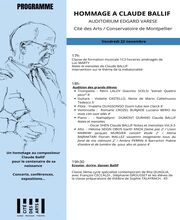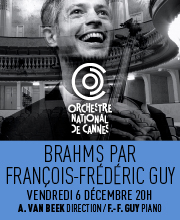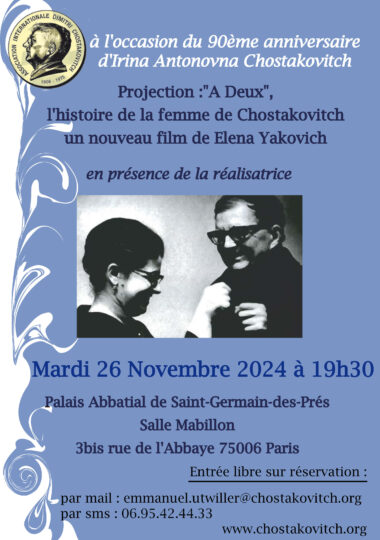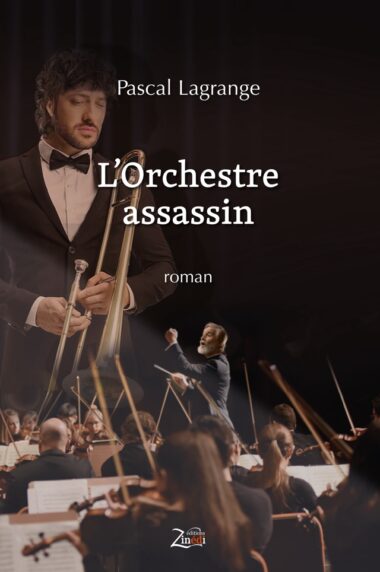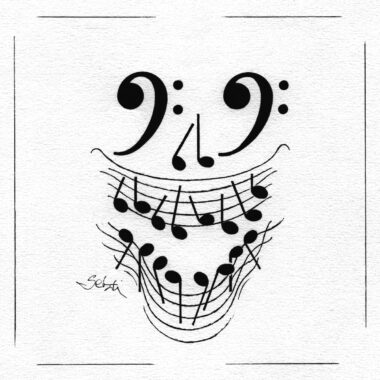Plus de détails
The Artists of the Royal Conservatory (ARC) is a chamber music ensemble based in Toronto, devoted to performing scores composed during the prolific years of the twentieth century. Their discography (Ben Haim Weinberg) demonstrates their commitment to the rediscovery of forgotten composers. Simon Wynberg, co-founder and artistic director of the ARC, explains their philosophy and projects.
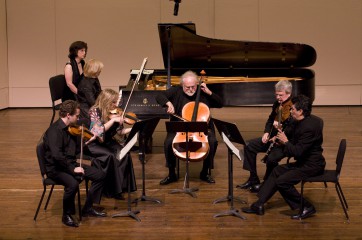 « I don’t think classical musicians really have duties beyond the normal responsibilities of non-musicians or non-artists. I think we enter very dangerous territory when we give artists special responsibility or expect them to behave in an exceptional manner »
« I don’t think classical musicians really have duties beyond the normal responsibilities of non-musicians or non-artists. I think we enter very dangerous territory when we give artists special responsibility or expect them to behave in an exceptional manner »
ResMusica : Why did you decide to create the ARC Ensemble?
Simon Wynberg : The ARC Ensemble is actually a project of Canada’s Royal Conservatory of Music (RCM), which is one of the largest national arts organizations in the country. The ARC is made up of the organization’s foremost teachers and soloists and I was asked to create an ensemble that would be a group in its own right that would also promote the Conservatory by touring and recording. When the ARC was established, there was no particular thought as to what exactly the ensemble would perform. That was more or less left up to me.
RM : Can you explain the philosophy of the “Music in Exile” series ?
SW : In 2003, I programmed a series of works by the Terezin composers, Gideon Klein, Viktor Ullmann, and Hans Krasa, and I came away with several thoughts. First, that this music always seems to be played in the context of memorial programs and that in the process, a new ghetto has been created for it. Clearly, this music and the best of these works should be played in regular concerts, with Beethoven or Janacek or anyone else, for that matter. But most importantly, these works are really only a tiny fraction of the music affected by the repressive regimes of Hitler and Stalin, and yet they only receive regular performances at depressing memorial events. So we decided to look into works by some of the composers who had been passed over. There are some very knowledgeable people in the field now.
RM : Why is it important for you to play the music of composers forced to flee Europe during the 1930s ? Is remembering them a duty for classical musicians?
SW : I don’t think classical musicians really have duties beyond the normal responsibilities of non-musicians or non-artists. I think we enter very dangerous territory when we give artists special responsibility or expect them to behave in an exceptional manner. It is not the performance of exiled music that is as important as investigating and assessing it in the first place. And, for that matter, I don’t believe we have a duty of any kind to perform music simply because of the circumstances of its composition or because the person who composed it was killed in a terrible context. However, it’s a terrible waste to ignore works of exceptional quality.
The simple explanation is that many exiles suffered as a result of their re-location. There were terrible emotional challenges– not knowing where one’s family members were or whether they were even alive, not knowing the new language, or the social and cultural environment, being obliged to take on relatively menial jobs. There was a strong feeling of alienation. As a result, many died earlier than they should have, their reputations were destroyed and their music was marginalized. Yes, one can argue that there is a moral duty to explore the music that was lost, simply because it was composed by someone who didn’t fit the Nazi race laws. But I believe that as musicians, we also have a responsibility to be curious and to explore; and there is a huge amount of music that deserves exploration and regular performance.
RM : Your most recent release is dedicated to the chamber music of Paul Ben-Haim. How did you rediscover his music?
SW : The ARC Ensemble had performed Ben-Haim’s Clarinet Quintet several times and I knew several of his other pieces. He is not as famous as he was before his death in 1984, but he is still familiar to some, especially in Israel. Very often, music by exiled composers is “hiding” in plain sight. Paul Ben-Haim’s biographer, Jehoash Hirshberg, included a comprehensive list of the composer’s works in his book. In going through the list, I noticed that several of Ben-Haim’s earlier works had remained unpublished. These were pieces composed before 1933, when he left Munich for British-mandated Palestine. It seems that, having developed a new aesthetic when he arrived in Tel Aviv, he lost interest and even disowned his earlier works. One of these was a really beautifully written and quite Brahmsian Piano Quartet. So I had the manuscript set (there were no parts) and it became a major piece on the Ben-Haim CD.
RM : You are very close to James Conlon. Why did you invite the maestro to become your ARC Ensemble’s Honorary Chairman?
SW : The ARC Ensemble was presenting a “Music in Exile” series of concerts in New York in 2008 and Maestro Conlon was in town to conduct the Julliard Orchestra. He attended one of our concerts, where I first met him, and was very generous about the performance; shortly thereafter, he invited the ensemble to perform at the Ravinia Festival, which he directs.
I don’t think anyone has done more to revive the suppressed music of the 20th century than Maestro Conlon, and he has done this in the field of opera (and as we know there is nothing musically more expensive and complicated). I thought that if he would agree to become our Honorary Chairman, that would be the best “seal of approval” we could possibly get. He was very happy to do so and I have had some wonderful opportunities to talk with him.
RM : In 2015, you will be in Germany to commemorate the 70th anniversary of the liberation of Dachau. Can you explain the philosophy of this concert?
SW : Actually, we will be in Dachau to commemorate the liberation. There are concerts in Poland, but these have more to do with Polish repertoire. For the Dachau concert, I wanted to somehow broaden the conversation. As I mentioned earlier, these kinds of memorial concerts always seem to have a similar depressing character. There is always the unspoken coda, “And then they were killed.” I think it is unfair to associate one set of pieces with this kind of concert. And I don’t think it’s our duty to make people even more miserable on memorial occasions. So for the Dachau concert, we decided to program works that are associated with the time and the war but not only through the lens of the very few composers who were able to work in the concentration camps. The program includes a String Quartet by the German composer, Hanning Schröder, based on the Lied der Moorsoldaten (the Peat Bog Soldiers), which was a song composed in Börgermoor, a camp for political prisoners. Then there is the Piano Quintet on Popular Polish Themes by Szymon Laks, which was composed shortly after the war. There is nothing in this work to suggest his recent experiences in Auschwitz and Dachau. There is the also the Piano Quartet by Paul Ben-Haim, who escaped from Germany. Before the ARC Ensemble performed this work, it had last been played on German radio in 1933. And, of course, Dachau is just a few kilometres north of Munich, where Ben-Haim was born and lived.
RM : What are your next big projects on records ?
SW : Our next recording is devoted to the Polish Jewish composer Jerzy Fitelberg, who escaped from Paris to New York in the 1930s. There are some very fine works in his catalogue and he is almost completely unknown, even within his own country. He died young, at the age of 48, in 1951.
Crédits photographiques : Beth Charteris
Plus de détails
The Artists of the Royal Conservatory (ARC) is a chamber music ensemble based in Toronto, devoted to performing scores composed during the prolific years of the twentieth century. Their discography (Ben Haim Weinberg) demonstrates their commitment to the rediscovery of forgotten composers. Simon Wynberg, co-founder and artistic director of the ARC, explains their philosophy and projects.





